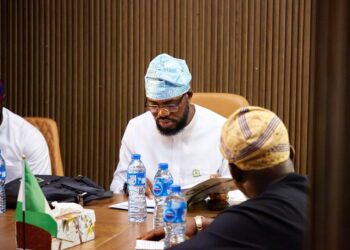It is estimated that no fewer than 25 million people are living with disabilities in Nigeria. This includes millions of children who daily face discrimination and in some cases abuse due to their disability. Earlier in the year, there was the case of seven-year old Imran Kanun Muhammad which was widely reported in the media. As a child with a disability, Imran allegedly suffered sexual violence and inhuman treatment at the School for the Deaf, Kuje, FCT.
He was withdrawn from the school by his parents and the case is currently the subject of a criminal action. However, as a result, for several months Imran had no access to any education as most government schools did not have the capacity to accommodate him, some were unwilling.
This is despite the fact that all children have the right to an education in Nigeria which the government is legally bound to implement. While his peers were in school, Imran was at home.

Eventually Imran was able to attend another school. However, his mother pays N50,000 naira from her income every month for special education teachers to tutor him. Sadly, such a case is not an isolated incident. Some months ago, there were allegations of rape of female students in the School for the Blind, Utako, Abuja.
This led to the suspension of two teachers by the Federal Capital Territory Administration. In another case, the dilapidated state of the Kwara State School for Special Needs in Ilorin was recently uncovered by the governor and he made commitments to improve the conditions in the school.
Incidences such as these give credence to the fact that children with disabilities continue to face discrimination, neglect and in many cases abuse and violence which not only amounts to criminality but also violates their fundamental rights including their right to education.
Children with disabilities continue to face multiple barriers, despite the Sustainable Development Goal 4 to ensure equal access to all levels of education and vocational training for the vulnerable, including persons with disabilities, which Nigeria has signed up to achieve.
These barriers include lack of access to mainstream schools, the high cost of education designed to meet their particular needs, physical inaccessibility, negative attitudes and stereotypes. Often, these barriers will intersect with a cumulative impact on the child.
More broadly, entrenched inequalities persist within the educational system that impact on children with disabilities: inadequate teaching materials and assistive devices, violence in schools, lack of an inclusive curriculum, poor welfare of students, untrained teachers and deficient teaching methodology. Sadly, these inequalities do not end in schools; people with disabilities also face discrimination in seeking employment.








